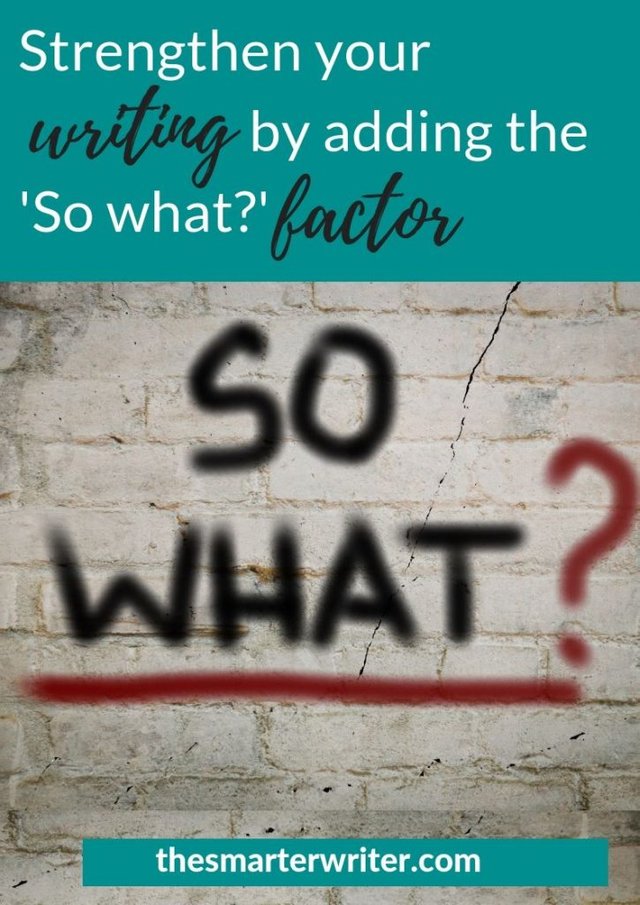

In 2004, I completed a Certificate IV in Small Business Management. It was a fabulous three-month intensive as part of the federal government's long-running and still going New Enterprise Innovation Scheme (NEIS).
"Segmentation and innovation" was one of our memorable marketing teacher's catch cries. How were we going to segment our target audience and innovate? He hounded us with this statement daily.
His other catch cry was "So what?"
Every time I submitted facts or data or statements as part of my business plan, he would scoff at me in the is gruff manner, "So what?"
He demanded more.
I loved him more than a little bit for that.
Make your words matter
This man pushed me to make my words matter, to not assume the data was self-evident, to make clear interpretations and not rely on the reader drawing the same conclusion as me.
Lately, I've been hearing the same catch cry from a colleague, albeit a far less gruff one. He's asked the same question in reports and other business documents I've been working on.
So what?
What does the data say? What do you mean here? What does it mean for our client? Spell. It. Out.
It's been a timely throw back reminder to my Cert IV days.
Applying the 'So what?' factor to improve my writing
Taking the time to carefully analyse data and explain it in a meaningful way has taken my report writing to a better level. Rather than letting data or information insinuate what I mean, I'm clearly stating what I mean.
Example
For example, instead of writing:
"More than half of users arrive at the site via a search engine. This means many users are not taking a linear pathway through the website. Pages lack contextual clues to quickly orient the user. The page doesn't show them where it sits in the navigation and what the user should do next after reading or scanning the page they land on."
When encouraged to explore that 'So what?' factor for that paragraph, I added:
"We can help users by:
- adding all pages to the navigation
- creating short summaries to help orient the user for pages that:
- are part of a larger document or process, or
- lack any short summaries
- highlighting calls to action and next steps for users."
Instead of assuming the reader will know what the information I presented means for their website and how to rectify it, after pondering the 'So what?' question, I clearly summarised how we could help their users.
In this case, the report was all about improving the reader performance, so the 'So what?' question driving my elaboration was 'So, what does that mean for the user?'
Adding the 'So what?' factor is one of the best ways to add greater clarity to your report writing and to be sure your message does not get misconstrued.
Adding the so what factor in writing makes your content richer and unambiguous.
Do you apply the 'So what?' factor to your writing? Or is this the timely reminder you needed? Let me know in the comments below.

Pin it to save it
Posted from my blog.